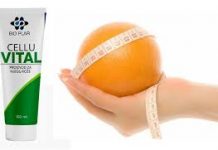Proteins: are the main compounds of cells, hormones and the immune system.
Daily consumption should reach 10% to 15% of the total caloric value and can be found in meat, milk, eggs and by-products. Its consumption is essential for the health of our organism. However, it is necessary to be careful with excess protein, as it can cause liver overload, kidney problems and other complications.
Amino acids that make up protein are widely used in gyms to gain muscle mass. But when used incorrectly, they generate results contrary to expectations. You have to be very careful!
Lipids: are considered the best fuel for the body during physical exertion. In the first 20 minutes of physical activity, the carbohydrates we have in the body are burned, soon after that the fat reserves (lipids) start to be used for energy. 25% to 30% of the daily caloric value should be taken in the form of lipids.
Vitamins and minerals: this group can fulfill its functions in small quantities, but their lack impairs the athlete’s performance, as well as their excess;
It can be stated that all nutrients in their appropriate amount are necessary for the good performance of an athlete. You should follow a balanced diet and try to get all the nutrients in the right amount.
What is the importance of food in the practice of physical activity?
Practicing physical exercises alone does not guarantee a healthy life, but it is accompanied by an adequate and balanced diet.
“Proper nutrition helps prevent fatigue, optimizes recovery time, reduces the risk of injury and, in addition, guarantees the correct replacement of energy reserves.” For those who regularly engage in some physical activity, food is a key factor in ensuring a good result. Therefore, it must be balanced and complete so that the body can properly perform all its functions and achieve good performance.

Proper nutrition helps prevent fatigue, optimizes recovery time, reduces the risk of injury and ensures proper replacement of energy reserves. On the other hand, failure to meet adequate nutritional requirements can impair post-workout recovery and compromise individual health. Therefore, it is essential to follow a nutritionist to assess which nutrients the professional should include in the diet in order to achieve their goals without developing a nutritional deficiency.
There are several factors to consider when designing a diet for an athlete, such as training routines, types of activities, eating habits, family history of diseases, body fat percentage, muscle mass, and more.
When eating, before or after training, it is quite common to have doubts about what to eat. The recommendation in this regard is usual: after exercise, prioritize the intake of carbohydrates and proteins in a ratio of 3:1, or
Foods that care for the skin?
There is no standard minimum recommended time for eating before starting physical activity. This will depend on the type of exercise and above all on the practitioner’s tolerance to the pre-workout meal. However, it is correct to say that the post-workout meal should occur as soon as possible (within the first 20 minutes) after exercise.
Another important factor to consider when doing physical exercises is hydration. Physical activity is known to cause greater loss of water and mineral salts, so be sure to drink enough fluids.
Water is a good choice if your workout doesn’t last more than 90 minutes
Above that, or when performance is really the goal, you should start consuming isotonic drinks. The amount of fluid to be consumed varies from person to person and the climate in which they exercise, but a good estimate is between 500 and 1000 ml per hour.




